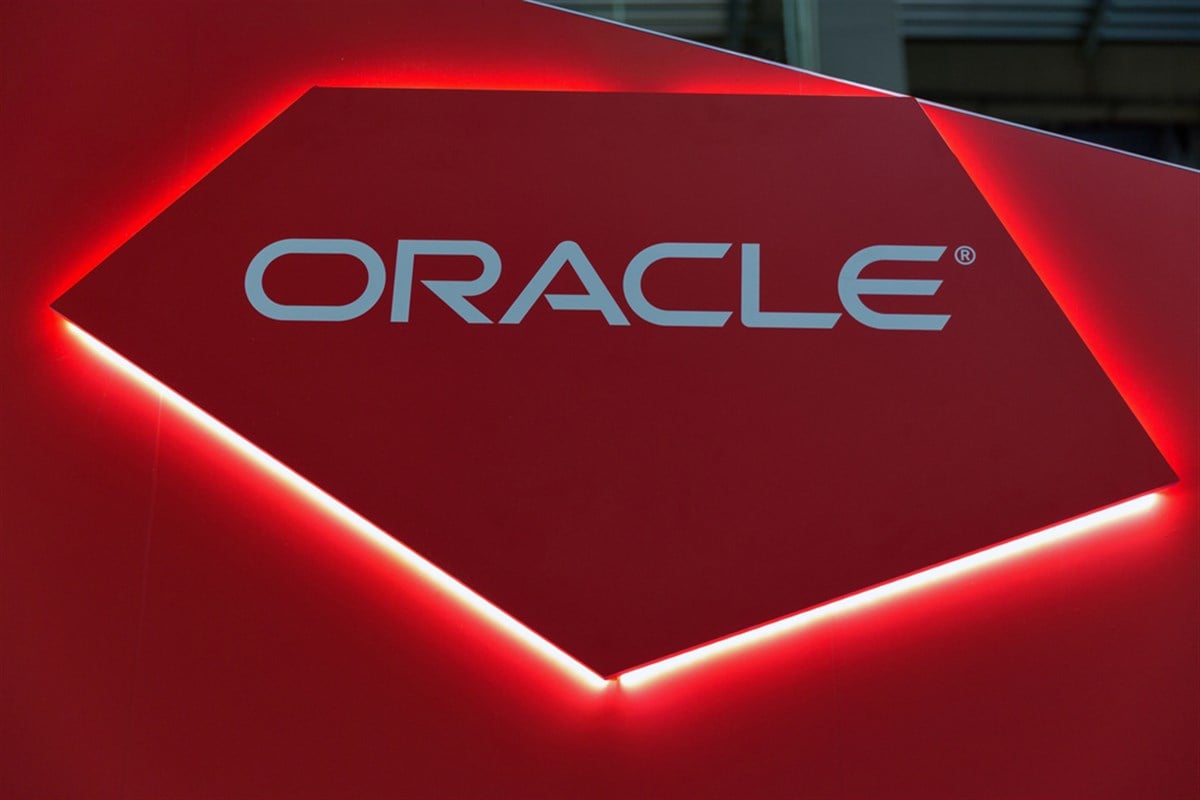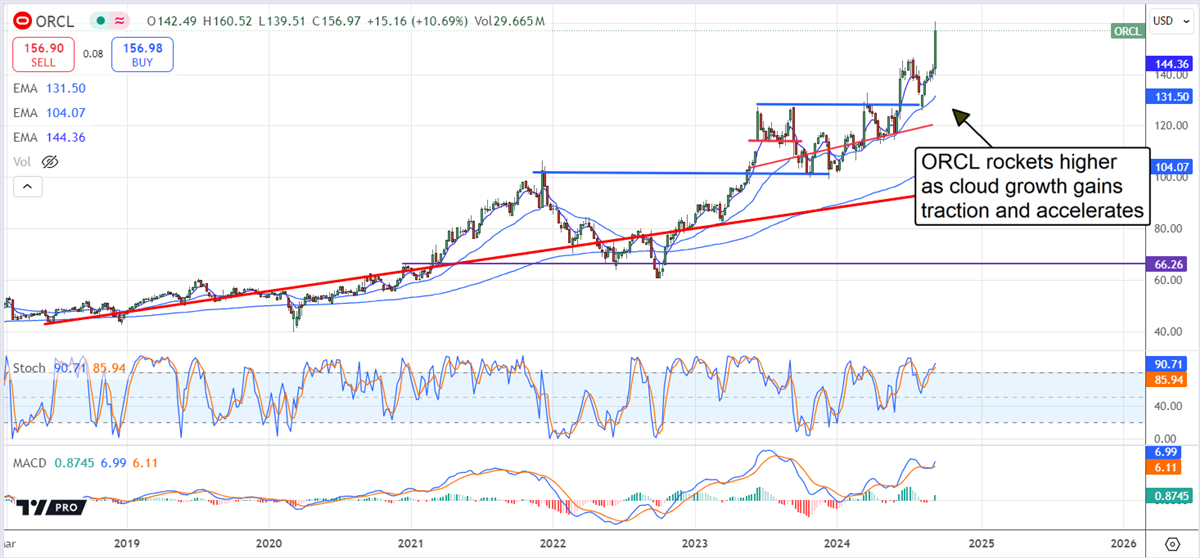
Oracle (NYSE: ORCL) will have to triple in value to hit the $1 trillion mark and have a valuation on par with today’s Magnificent 7, but it can do it. Its FQ1/CQ3 results reveal its growing importance to Internet infrastructure, the cloud, and AI, which is accelerating revenue and earnings growth. The critical detail is that its shift from products to cloud services was revolutionary and game-changing, and it set it up to become the leading provider of database solutions and AI infrastructure today.
A new partnership with Amazon (NASDAQ: AMZN) is one of the latest developments driving Oracle's business. The deal makes Oracle the leading cross-cloud solution embedded into every hyperscaler's cloud, opening access to virtually 100% of the growing addressable market. Oracle will go live at AWS later this year and accelerate growth again.
Oracle Says Cloud Growth Will Accelerate This Year
Oracle had a solid quarter, with growth accelerating to nearly 7% and revenue of $13.3 billion in FQ1. The strength was driven by a 45% gain in IaaS or cloud services, offset by a smaller 10% gain in SaaS. Critical details with the SaaS segment are that Oracle's Fusion Cloud ERP and Netsuite Cloud ERP are driving growth with 16% and 20% gains, respectively. Another critical detail is that cloud services became the largest operating segment, driving wider margins and accelerating earnings growth.
The margin news was good. The company logged a 400-basis-point improvement in total operating expenses to widen the operating income margin to 30%. Adjusted operating income is up 13%, outpacing revenue by 720 basis points, leaving earnings up 18%, and strength is expected to continue as new cloud regions come online and drive SaaS business. Chairman Larry Ellison says there are over 162 data centers built or in-process, expected to hold acres of NVIDIA GPU clusters, with dozens of cloud regions still to come online for Microsoft (NASDAQ: MSFT), (NASDAQ: GOOGL), and now AWS.
Oracle’s Growth Is Not Priced Into the Stock
Oracle’s growth is yet to be priced into the stock because the remaining performance obligation or RPO, the net value of yet-to-be-completed contracts, is growing, and growth is accelerating. RPO is up 53% year over year, aided by 42 new cloud GPU contracts signed in the quarter, and equal to nearly two years of revenue at the Q2 pace. Partnerships with MSFT and GOOGL drive Q2 RPO growth, which will accelerate again as AWS cloud regions come online later in the fiscal year.
The stock’s value is seen in the price multiple and the analysts' response. The stock trades at a 20x earnings multiple, which is low compared to the average S&P 500 company, let alone the leading AI players with growth accelerating, so a price multiple expansion is likely. ORCL stock also pays a safe and reliable dividend, adding value to the investment. The dividend is worth about 1.15%, with shares near $155, and is only 25% of the earnings consensus reported by MarketBeat. There are no red flags on the balance sheet; it is a fortress with cash rising, assets up, liabilities flat, and long-term debts only 1.05x the cash position, so distribution increases are expected to continue robustly.
Oracle Rockets Higher: Analysts Upgrade ORCL Stock
Oracle stock rocketed higher following the Q2 release, aided by the outlook and analysts' activity. MarketBeat tracked over a dozen reports within the first 24 hours of the release, including numerous upgrades and increased price targets. The consensus of the revisions is that Oracle is a Buy/Strong Buy headed to the $175 to $180 region, a nearly 15% gain from $155 and larger gains are expected over the longer term. The stock is in a sustainable uptrend driven by accelerating earnings growth, and the growth cycle has just begun.
